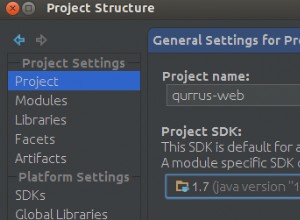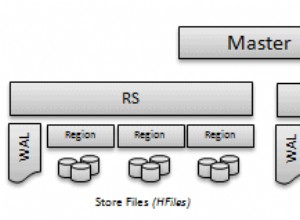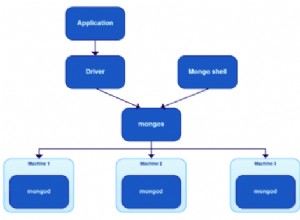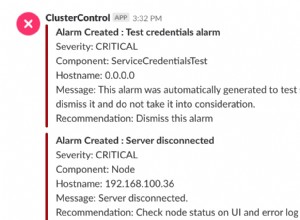Ich bin ein Python/Django-Neuling, aber ich konnte das Problem beheben, indem ich AllValuesFieldListFilter von https://github.com/django/django/blob/stable/1.4.x/django/contrib/admin/filters.py
(Stellen Sie sicher, dass Sie Ihren Zweig auf Ihre Version von Django ändern) und dann habe ich den Aufruf von distinct entfernt . Musste eine Menge Sachen importieren. Dann funktioniert es. Ich habe auch die Änderungen aus der Antwort von @AlexeyMK angewendet, um sie wieder deutlich zu machen.
für 1.4:
from django.contrib.admin.filters import FieldListFilter
from django.contrib.admin.util import (get_model_from_relation, reverse_field_path, get_limit_choices_to_from_path, prepare_lookup_value)
from django.utils.translation import ugettext_lazy as _
from django.utils.encoding import smart_unicode, force_unicode
class MongoFieldListFilter(FieldListFilter):
def __init__(self, field, request, params, model, model_admin, field_path):
self.lookup_kwarg = field_path
self.lookup_kwarg_isnull = '%s__isnull' % field_path
self.lookup_val = request.GET.get(self.lookup_kwarg, None)
self.lookup_val_isnull = request.GET.get(self.lookup_kwarg_isnull,
None)
parent_model, reverse_path = reverse_field_path(model, field_path)
queryset = parent_model._default_manager.all()
# optional feature: limit choices base on existing relationships
# queryset = queryset.complex_filter(
# {'%s__isnull' % reverse_path: False})
limit_choices_to = get_limit_choices_to_from_path(model, field_path)
queryset = queryset.filter(limit_choices_to)
def uniquify(coll): # enforce uniqueness, preserve order
seen = set()
return [x for x in coll if x not in seen and not seen.add(x)]
self.lookup_choices = uniquify(queryset.order_by(field.name).values_list(field.name, flat=True))
super(MongoFieldListFilter, self).__init__(field, request, params, model, model_admin, field_path)
def expected_parameters(self):
return [self.lookup_kwarg, self.lookup_kwarg_isnull]
def choices(self, cl):
from django.contrib.admin.views.main import EMPTY_CHANGELIST_VALUE
yield {
'selected': (self.lookup_val is None
and self.lookup_val_isnull is None),
'query_string': cl.get_query_string({},
[self.lookup_kwarg, self.lookup_kwarg_isnull]),
'display': _('All'),
}
include_none = False
for val in self.lookup_choices:
if val is None:
include_none = True
continue
val = smart_unicode(val)
yield {
'selected': self.lookup_val == val,
'query_string': cl.get_query_string({
self.lookup_kwarg: val,
}, [self.lookup_kwarg_isnull]),
'display': val,
}
if include_none:
yield {
'selected': bool(self.lookup_val_isnull),
'query_string': cl.get_query_string({
self.lookup_kwarg_isnull: 'True',
}, [self.lookup_kwarg]),
'display': EMPTY_CHANGELIST_VALUE,
}
Geben Sie dann an, diesen Filter wie folgt zu verwenden:
list_filter = (('myfield', MongoFieldListFilter),)
Es ist schön, weil kein Patchen erforderlich ist.




